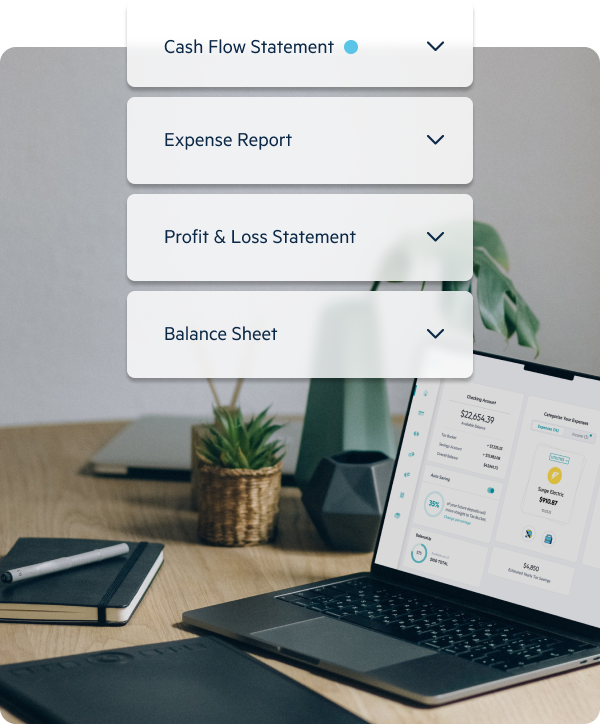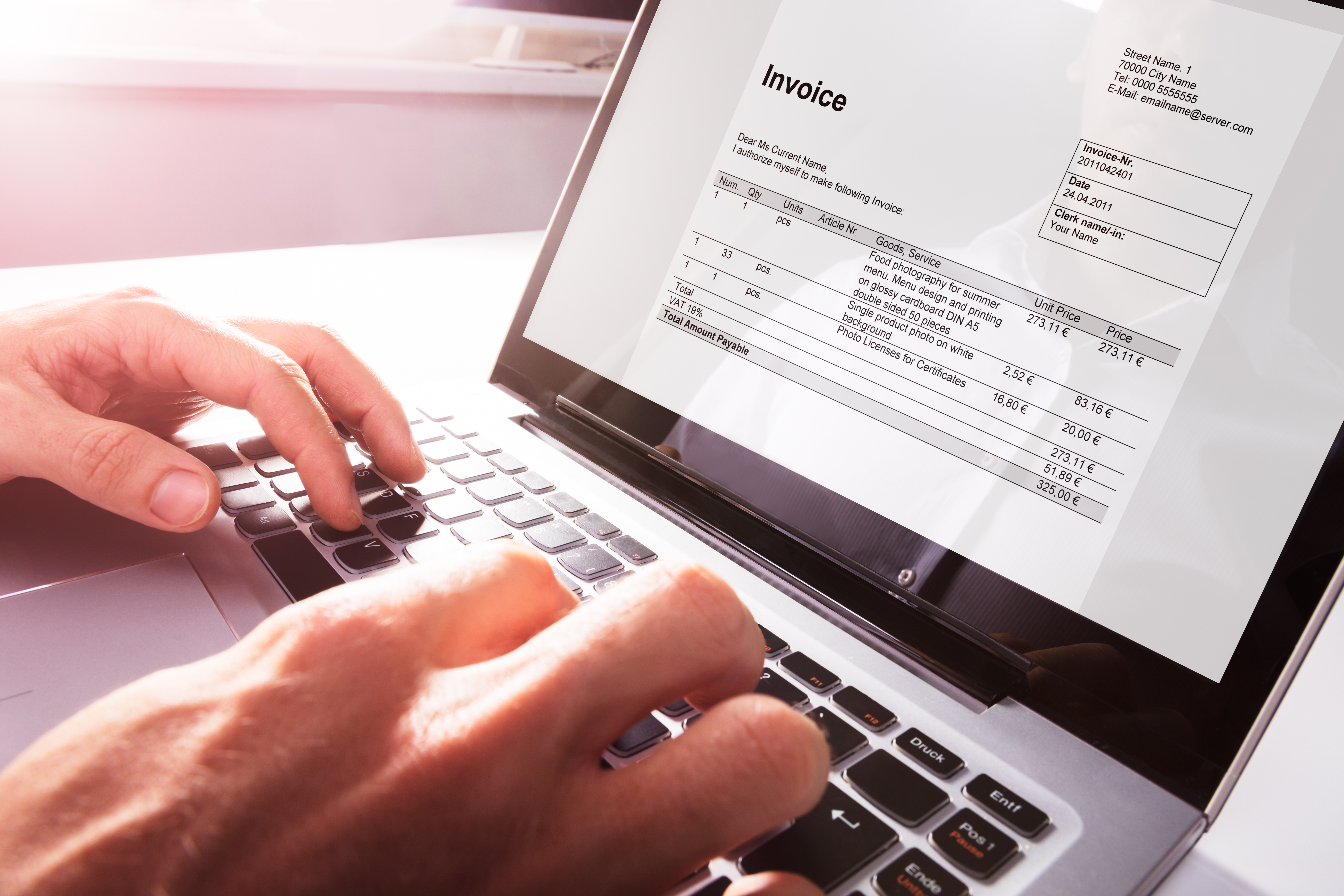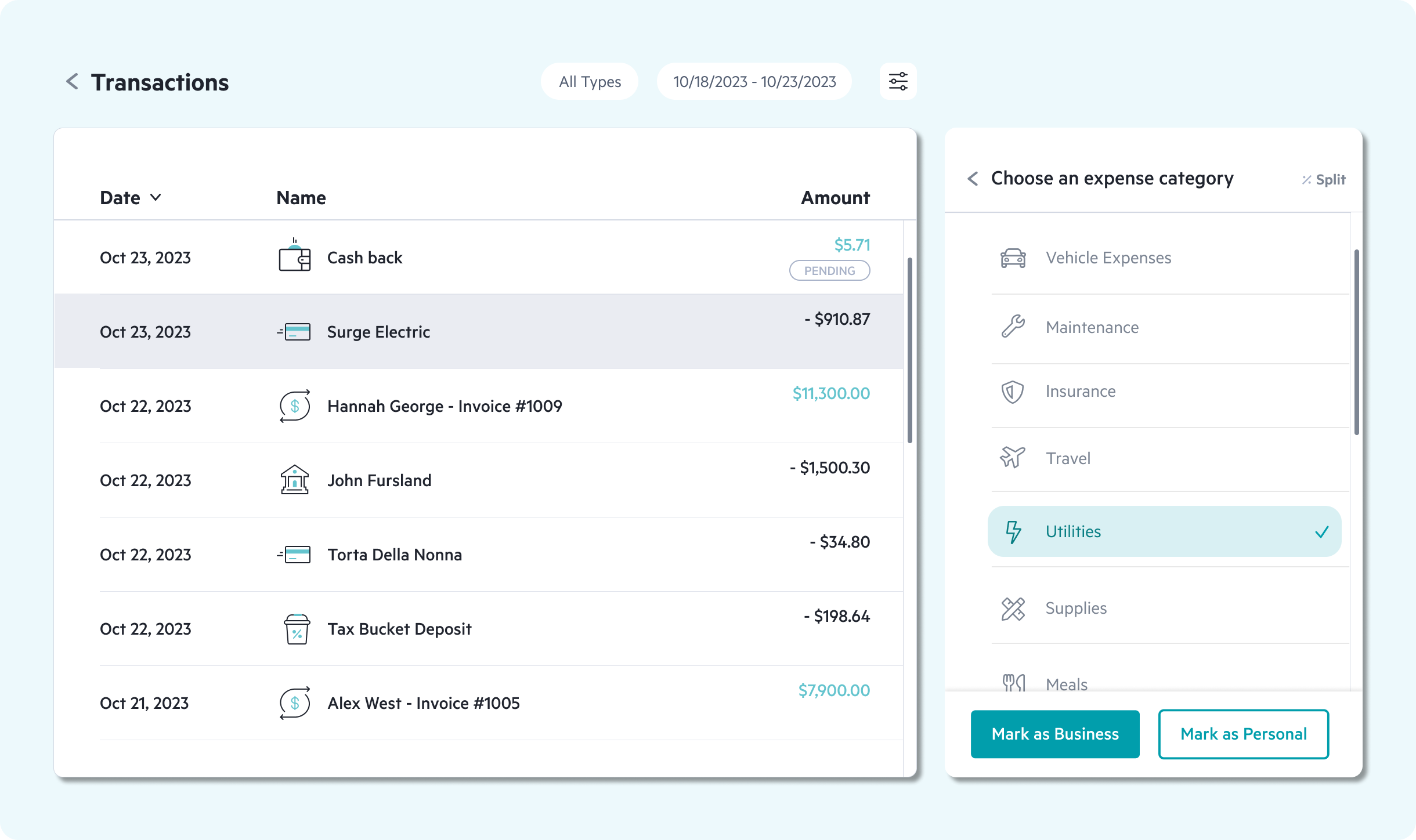Lili App Inc.
Offices at 15 West 18th Street, New York, NY 10011, United States.
Lili is a financial technology company, not a bank. Banking services are provided by Sunrise Banks, N.A., Member FDIC. The Lili Visa® Debit Card is issued by Sunrise Banks, N.A., Member FDIC, pursuant to a license from Visa U.S.A., Inc. The Card may be used everywhere Visa debit cards are accepted.
Wire Transfer service provided by Column Bank N.A., Member FDIC. All wires are subject to acceptance criteria and risk-based review and may be rejected at the sole discretion of Column Bank N. A. or Lili App Inc.
1 Eligibility for cashback awards is available to Lili Pro, Lili Smart, and Lili Premium account holders only; applicable monthly account fees apply. For details, please refer to your Sunrise Banks Account Agreement.
2 Accounting, tax preparation and invoicing software is available to Lili Smart and Lili Premium account holders only; applicable monthly account fees apply. For details, please refer to your Sunrise Banks Account Agreement.
3 The Annual Percentage Yield (“APY”) for the Lili Savings Account is variable and may change at any time. The disclosed APY is effective as of January 13, 2026. Must have at least $0.01 in savings to earn interest. 2.25% APY applies to balances of up to and including $500,000. 4.00% APY applies to balances over $500,000 and up to and including $1,000,000. Any portions of a balance over $1,000,000 will not earn interest or have a yield. Available to Lili plans.
4 BalanceUp is a discretionary overdraft program for debit card purchases only, offered for Lili Pro, Lili Smart, and Lili Premium Account holders; applicable monthly account fees apply. You must meet eligibility requirements and enroll in the program. Once enrolled, your Account must remain in good standing with a deposit and spending history that meets our discretionary requirements to maintain access to the feature. BalanceUp overdraft limits of $20-$200 are provided at our sole discretion, and may be revoked any time, with or without notice. Please refer to our BalanceUP Service Disclosure for more details.
5 Early access to ACH transfer funds depends on the timing of the payer’s submission of transfers. Lili will generally post these transfers on the day they are received which can be up to 2 days earlier than the payer’s scheduled payment date.
6 Up to $1,000 per cardholder per 24 hours period. Some locations have lower limits and retailer fees may vary ($4.95 max). Note that Lili does not charge transaction fees.
7 Lili AI and other reports related to income and expenses provided by Lili can be used to assist with your accounting. Final categorization of income and expenses for tax purposes is your responsibility. Lili is not a tax preparer and does not provide tax, legal or accounting advice. You should consult your own tax, legal and accounting advisors regarding your specific situation.
8 Lili does not charge debit card fees related to foreign transactions, in-network ATM usage, or card inactivity, or require a minimum balance. See the Master Fee Schedule, Appendix A to the Sunrise Banks Account Agreement for more detail.
9 International wire transfers are only available to legal entity customers (LLCs, corporations, and partnerships). Transfers can be made to and from select countries. Please check your app for the most up to date list. Fees apply. Learn more here Sunrise Banks Account Agreement.
10 Access to capital is provided by our partners that offer business loans or lines of credit. Lili is a financial technology company, not a bank or lender. Underwriting required.
11 Expedited availability of funds is based on individual circumstances.
12 FDIC insurance only covers the failure of an FDIC insured bank. The standard FDIC deposit insurance limit is $250,000 per depositor, per FDIC insured bank, per ownership category through Sunrise Banks, N.A and the sweep program banks. See Sunrise Banks Account Agreement and Addendum to Sunrise Banks Account Agreement.
13 BusinessBuild is an add-on feature available to all Lili Accounts, except sole proprietorships and non-US citizens. After a one-month free trial, account holders will be charged $18 per month for the next three months, then $30 per month thereafter. By integrating your Lili Account through the D&B Credit Insights banking integration feature, there may be potential for you to positively impact your Delinquency and Failure Scores. Dun & Bradstreet requires a minimum of six months of business banking transaction history to be able to potentially impact these scores. Customers must be enrolled in the BusinessBuild feature to access the Lili BusinessBuild Card (Card). Lili App Inc. (Lili) partners with CapitalOS and First Internet Bank of Indiana, Member FDIC, for the Card. Lili is a financial technology company, not a bank or lender. CapitalOS is a financial technology company and lender, not a bank. CapitalOS or one of its affiliates is the lender, and Cards are issued by First Internet Bank of Indiana, pursuant to a license from Visa U.S.A. Inc.
14 The Core banking account has no monthly fee. Monthly fees apply to the Pro, Smart, and Premium accounts. See the fee schedule here for details.
15 To learn more about our fees, please check out our fee schedule here.
16 Figures based on a Lili survey conducted between January 1, 2025 to January 1, 2026. Information available upon request.
© 2026 Lili App Inc. All Rights Reserved.




















